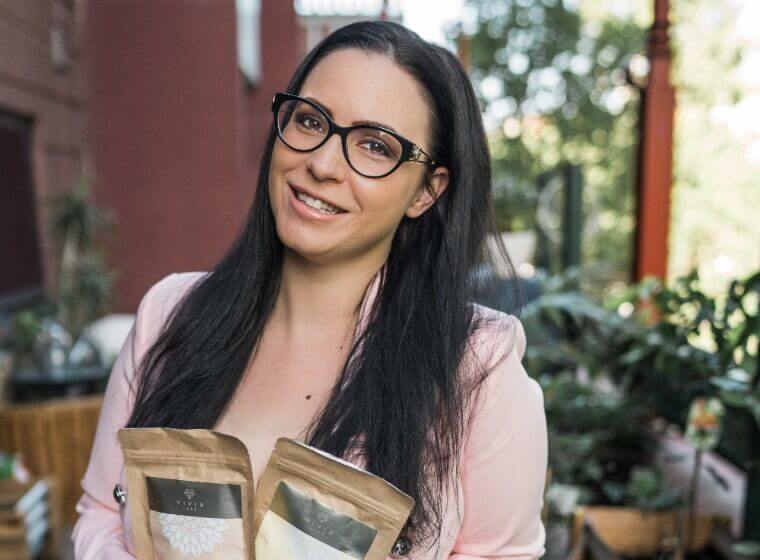There’s a lot of women who are successful in business, however as a female I seemed to have made my mark on the business world in a rather unconventional way. I have often been asked about how I ended up owning IMARI and what my drivers are. So I thought I would give a bit of history for those who wish to read.
I started my business career when I was 15 and fresh out of year 10. I had no career dreams or aspirations other than I knew one day I would start my own business. I had no idea what I would be doing, or why I wanted to own my own business, but I just knew that I would.
So I worked in public practice accounting for 5 years across various accounting firms, starting as an Administrator and then eventually an Office Manager. During this time, whilst in my very first job at a modest accounting firm, I was offered a 2 year diploma in Business Administration. Having no business experience what so ever, nor workplace experience, and little applicable knowledge from high school I set to task learning the new duties of my role and undertaking the units required to complete the qualification. Much to my employers surprise, I rapidly completed the tasks in front of me and had the diplome finished in 6 months. Eager for my next task, my boss had no choice but to start teaching me corporate and personal tax and business finance best practice.
At the end of my time at that firm, I was confidently preparing and advising clients, with no qualifications whatsoever, apart from a Diploma in Business Administration. At this stage, I was only 18. My high school friends were a year or so into their university degrees, and I had already accomplished what it would take another few years for those completing an Accounting Degree to even attempt.
After so many years in the Accounting industry I felt I had learned all that I could and I was headhunted for position at a prominent legal firm in Perth. This role was in the finance department and was challenging. I was young and was trusted to manage large clients for the company and ensure their accounts were managed correctly. I set to task quickly, and saw major holes in the way the company was operating, especially when it came to overdue accounts and debt collection. I took it upon myself to turn their system on its head, and rather than the usual calls to clients asking for money and putting pressure on, I started to ask them, how I could help them make the money to pay our very large outstanding debts (in some cases in the millions).
This approach saw me rapidly reduce the number of outstanding accounts, firstly because people began to trust me and my approach, and secondly because they actually made money with which to pay us. Seemed like such a simple concept to me at the time, and seemed ludicrous that no one had done this in the first place. Our company had access to the right connections to make things happen, but it seemed everyone had become complacent.
During this time I was approached by a business man who knew of my skill at improving companies’ cashflow and finances and he asked me to review his business accounts. At this stage I was only 20.
I reviewed the books which looked dire and gave my feedback. They asked me to come on board with the company but in a lower level role that what I was doing currently and at a much reduced wage. It may have seemed silly, but I accepted. I knew that I had learned and achieved much of what I would working for the legal firm, and decided I needed a new challenge. What better challenge than drastically reducing your income and taking on board a mismanaged company.
I planted my feet firmly within the company and worked my way up from Administration to Finance Manager and was the 2IC to the Managing Director. I stayed with the company for 6 years and made many many changes in order to help them blossom into a company that when I started had 4 staff to a company that had over 30 staff when I left.
It wasn’t easy by any stretch, being so young and female, to be advising middle aged men how to structure and direct their business was hard for everyone to swallow. I was the youngest manager let alone senior manager in the business, and whilst people trusted what I had to say, does anyone ever really believe the words of a 22 year old in business? Would you?
I worked around their issues by hiring a business consultant (much like I am now) who was in his late 50’s and had worked across multiple industries and disciplines. I hired him to be my voice. And it worked. We would debrief and I would give him my desired direction for the company and he would sit in board meetings with me and give quantifiable information to the board as to what and when our next steps should be. The fact that he also backed me was highly flattering. I knew he wouldn’t have risked his own business reputation if he didn’t truly agree with the somewhat left of centre direction I was trying to take the business.
That job was a turning point so to speak in realising what I could do and what my strengths were, my challenge, was how to convince future employers to trust my opinions and direction on first pass without having to access every angle possible to convince them.
However my daily struggle in this workplace taught me some extremely valuable lessons about patience, perseverance, and trusting your instincts. And I suppose overcoming adversity. I wasn’t going to give up on trying to improve this business – even though I had no stake in it apart from my own moderate wage and I believed vehemently that I could build and grow this business. So I did.
When I decided it was time to move on, I took a 3 month hiatus and decided I wanted to find an opportunity that really allowed me to make my mark. I remember applying for a job, and when I read the job description and their website, I had no idea what they actually did. It sounded very scientific and intellectual. It was perfect.
I applied, and I was invited to interview at a café in South Perth. The man I met was a quirky intellectual American man who spoke about things like seismic data, data management and basically every second term seemed like a foreign language. Despite my non understanding of the terminology I felt the interview went well, and seeing the role was a finance manager role I knew I could fulfil all the duties asked of me.
What excited me again was learning and adopting a new industry, one that was far beyond anything I had attempted before.
It wasn’t long before I was working across several departments and was elbows deep in the business. I loved every inch of what I was doing, I loved the people, I loved the intensely technical nature of what the company was doing, I loved working in the resources and technology industry.
Not long after I had started, the company went through an internal restructure and the CEO realised he couldn’t do what he was doing without higher level support and they required a General Manager. I was asked amongst several others to apply for the role, however I was the newest to the company, with no industry or technology experience. It was a no brainer, I wasn’t getting the role. However I knew I could do the role, and put forward what I believed was a compelling ‘application’.
Keep in mind at this stage I was a 26 year old tattooed female in a vastly male dominated industry. The odds were all stacked against me, or so it seemed. Much to my surprise, I landed the job and very quickly was thrown into the lions den.
I was back in the same position I was at where I was perceived by some as too young and too female for my position and I fought tooth, claw and nail to prove my worth to that company and its clients and justify the decisions I made. I always stood by every decision and risk I took and I am proud of that. I was part of international projects and negotiations and spent time globally in countries like India and USA, the job was a whirlwind and I loved the ride. Often I was the first in and the last to leave. I was constantly looking for ways to improve the business and implemented many systems and developments across a variety of departments. I received recognition from my peers and the board and all my hard work was paying off.
However, the work life balance was non-existent. I adopted the work hard play hard approach but never had time for myself or really any actual downtime. I started to burn out, I gained weight and was showing signs that I was struggling with the long hours.
I began to question my passion for the business and began to wonder if there wasn’t a way I could bring the knowledge I had learnt across my multiple industries and roles to smaller businesses, people who really needed the help and would benefit from applying the same principals as the larger companies.
I started a company as business planner and consultant with a friend and we looked to specialise in app development and other software systems. We started to develop our own app and my passion was reignited for technology and its capability to revolutionise the way people interacted and made decisions. It wasn’t long after that IMARI was born.
I decided it was time to move on from my role as GM and focus full time on assisting and helping SMEs. It was a scary decision to make and I had no idea if I would be able to support myself, this is something I think all entrepreneurs and business owners go through in the early stages of their leap of faith.
So I took on the clients that I could and fortunately for me, word of mouth recommendations came in quickly. I was working with global and national companies and making real tangible changes which inspired me to keep going and continue to drive innovation in my business.
Ultimately, looking back now, even though IMARI is only in its infancy, it’s been the best decision I ever made. I love working with my clients and get real value from helping people grow their businesses and increase their profits. It has also been very rewarding winning titles such as Top 100 influential business people in Perth and the 30 under 30 Entrepreneurs in Australia, as well as being interviewed and profiled by ZDnet, Marie Claire magazine and The West Australian.
Despite my success to date, I wouldn’t have achieved any of it had I given up. Sleepless nights and literally losing my hair were all worth it, and the sacrifices I made because I had a dream all make sense now, when sometimes they didn’t at the time.



